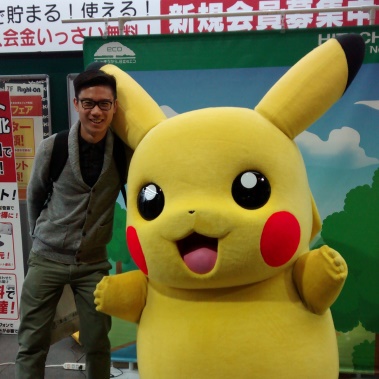Get to know Albert Huynh (CHEM1T2 + PEY), ILead’s new Leadership Education Specialist!
What are the responsibilities of your role at ILead and what initiative are you most looking forward to participating in?
I can’t pick a favourite initiative, but I’m excited to help unlock ILead’s potential to connect with our students. Particularly, I’ve come to learn that we don’t always do a good job at making leadership learning accessible, practical, and useful to our students. I’m hoping to help change that.
I’m currently spearheading two initiatives to bring ILead closer to students in a meaningful way. The first is integrating personal and team development modules into core technical courses. This isn’t just about dropping a guest lecture into a course, but rather looking at what projects and learning objectives a course already has and seeing how leadership skills can help to support those.
The second initiative is “The Game” a 7-month program that aims to help engineering students wrestle with complex societal challenges and ambiguous problems. What I hope to push our students to realize is that there are no “right” answers when working in the real world, only “better” ones, and that the best way to learn, is just to get your hands dirty and go for it.
I also help to design and deliver one-off workshops and sessions for different groups and organizations, track performance outcomes for ILead programs, look at partnership opportunities for our offerings, and speak candidly with students about their experiences with ILead and how we can be better.
What do you think has been the most influential leadership experience you have participated in?
It’s hard to pick one, but I would say that being an Orientation Week (F! Week) Head Leedur (sic) for 4 years definitely made a huge difference on how I perceive leadership. Although I was in a role of positional power, I came to learn that the biggest influences often come from the smallest actions, like sharing a personal story of failure to a scared first year student, connecting a fellow peer to a club or resource that they never knew existed, or pushing a team to challenge their assumptions about organizational culture and how to be better. Fundamentally, what I’ve noticed is that we can be phenomenal leaders without ever holding a leadership position, and that we can similarly be awful leaders while clinging onto empty titles. Just think about that TA, club president, elected official, or manager in your life that makes you wonder “Why are they there?”. Positions and titles don’t make leaders, leadership is a choice that we make every moment of every day and that was what F! Week taught me.
You have recently been working on an uncommon Masters in the Faculty of Engineering, can you describe the program, why you chose to pursue it, and what you found most beneficial from it?
After getting my BASc in Chemical Engineering, I realized that there is a lot that we can do to improve the way engineers get taught in school. From there, I had three choices, do nothing, complain, or try and make some change. That last option was what led me to enroll in an MASc in Industrial Engineering through the newly established Engineering Education (Eng Ed) program. The Eng Ed program is a joint certificate program for research-based graduate students in the Faculty of Engineering and the Ontario Institute for Studies in Education (OISE). The program creates space for research and conversations about all areas of engineering education, from pedagogy (the way we teach), to learning environments (technology in classrooms, e-learning), assessment (exam types, rubric design), learning styles, cultural differences, curriculum mapping, and outreach, just to name a few. What I’ve found most useful is the way in which it has empowered me to critically analyze how we teach and learn and to explore creative designs that allow my engineering thinking to be applied to solving educational problems.
As a graduate from U of T, what is one piece of advice you would give to current undergraduate students?
Take ownership of your own experience. Having been on the other side of the fence as a TA, instructor, staff member, and even employer, nobody will have all the answers for you, nor will they ever know what’s ultimately best for you. This means that you should expose yourself to as many opportunities to learn and grow as you can, take in new perspectives, and not be afraid to challenge the status quo when it comes to things you can see done better (if any of that has to do with ILead, come talk to me). This is how great initiatives like the You’re Next Career Network ultimately started and how most curriculum reform happens now at U of T. So go out there, get out of your comfort zone, and speak up to create the change you want to see.
What is one thing you would take on a desert island?
Probably a fully-fueled, functioning boat.
-Michael Sabatini

